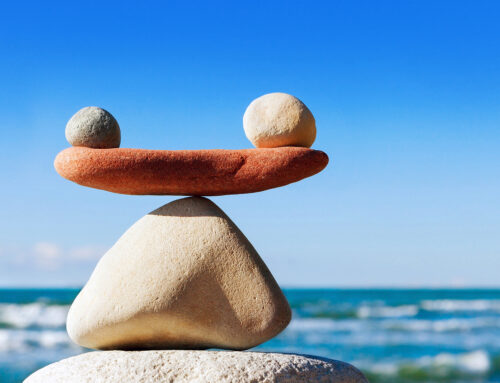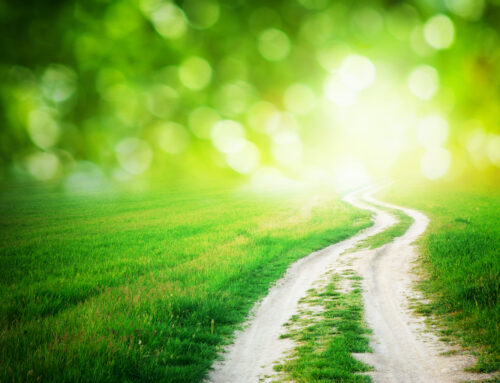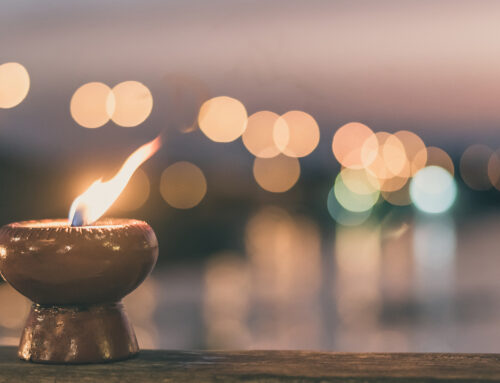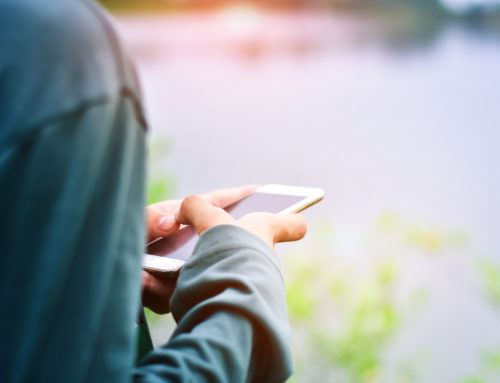“Every moment only once.”
-Thich Nhat Hanh
“Every moment only once.” I love these words by Thich Nhat Hanh, a monk, a spiritual leader, poet and peace activist who is renown for his teachings and writings on mindfulness and peace. Some of Thich Nhat Hahn’s key teachings are that the practice of mindfulness helps tether us to the present moment and that the only way to truly develop peace is to start with the present moment. We can best support greater peace in the world by beginning to cultivate greater peace within ourselves. Then we can cultivate, intentionally, improved life balance and greater peace in the world through our everyday actions and interactions.
I was reminded of his words recently while reflecting on the political, social, financial and environmental uncertainties in our world right now. It feels like every time I tune into the media, I encounter something that causes me to shudder and question what is happening to and within our world. And, I know that I’m not the only one experiencing frustration, upset, variance, fear and the occasional despair. Friends, family members, colleagues and clients alike all seem to be experiencing similar feelings of discord, questioning what is going on and wondering how to find their own personal grounding so they can remain calm, centered and balanced while in an ever-changing state of uncertainty and upset.
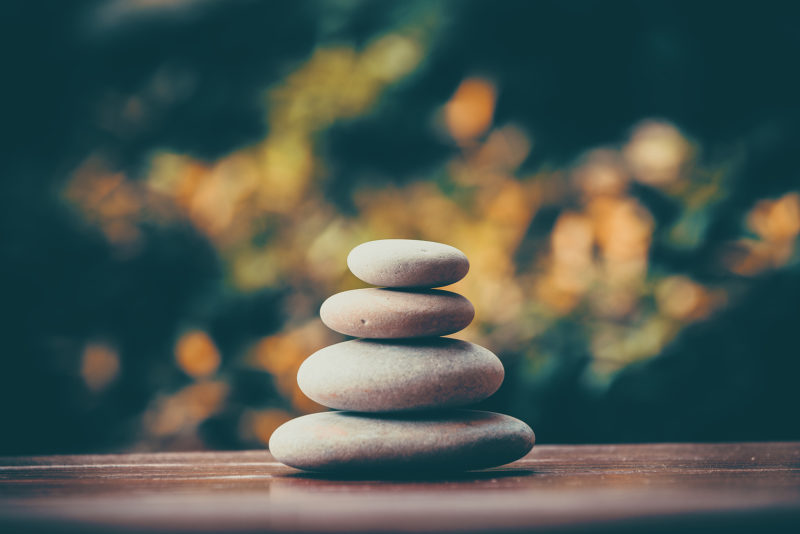
To achieve and sustain life balance, I always come back to the practice of mindfulness. Mindfulness is the practice of focusing attention with nonjudgmental awareness on the present moment. All change happens in the present moment, and a mindfulness practice allows you to focus your attention so you can be more intentional about your actions and interactions that happen in any given moment. It entails cultivating the ability to become aware of when you start engaging in thoughts, as well as resisting the temptation to become absorbed in them. Being mindful might sound simple, but don’t mistake simple for easy. It takes practice to be still and quiet in the space between thought. However, with diligent daily effort (one of the great things about mindfulness is that it can be practiced anywhere, anytime), you can cultivate a mindfulness practice and reap its many benefits and rewards, including fostering balance in an increasingly unbalanced world.
Get Comfortable With The Uncomfortable
The ability to sit with what is uncomfortable pushes us beyond our normal comfort zones and offers us opportunities to make personal discoveries and engage in a process of personal growth and transformation.
While a wonderful reprieve from the ongoing and inevitable challenges along this road called life, we don’t usually learn and grow in those blips of bliss when we’re happily coasting along. Rather, it’s when we’re faced with uncomfortable situations, thoughts and feelings and get present with and clear on those situations, thoughts and feelings that balance can be cultivated and/or restored in our busy and demanding lives.
Being comfortable with the uncomfortable isn’t a skill that most of us our born with. Rather, it’s one that demands practice and time to cultivate. It is, however, a skill well worth the effort to hone. Mindfully leaning into what is uncomfortable—be that a new job, a breakup, the latest breaking story in the news—allows us create distance from the narratives that most of us constantly have running in the back of our minds. This process can help you realize that thoughts are just thoughts. And, simply having a thought—particularly a negative or self-defeating one—doesn’t necessarily mean that you have to take it seriously, or even engage with it. You can dismiss it like a mosquito, lightly batting it away and moving on.
Close The Laptop And Put Down Your Phone
In a society with access to so much information usually just an arm’s length away, I often worry about the lack of control and self-awareness that so many of us have when it comes to the role that technology plays in our lives. People as a whole are spending less and less time connecting to other humans and more and more time getting pulled into their cyber-lives, which often exacerbate rather than relieve feelings of discontent and create even more uncertainty, disconnection and imbalance in our already teeter-totter like lives. We engage in risky smartphone behavior, such as texting while crossing the street, driving or even biking. We lose sleep staying up late at night reading through social media feeds and news articles that we either stress over or forget about the next day. And, looking down rather than up, out or within, impacts the relationships we have with the people in our lives and, arguably even more importantly, the one we have with ourselves.
Finding greater balance in how you use technology can lead to improved balance in all the other aspects of your life. Technology is awesome and gives us access and opportunities that were unfathomable decades ago, but its overuse also comes with consequences and can lead to lead to lower empathy, lower self-confidence, depression and anxiety, not to mention relationship problems. Thankfully, there are ways that we can alter our relationship with our devices so that the use of technology becomes empowering and even nourishing rather than depleting.
If, like most Americans, your use of technology has gotten a little out of control and you often find yourself traveling down the rabbit hole of the information age, losing time scrolling and tumbling along, it’s likely time to for you find balance between screen time and downtime. Start out by cutting out all unnecessary notifications—especially news notifications if you find them triggering.
The next time you pick up your phone, try working through this checklist instead. (I have a sticker version of this adhered to my phone case. My intention is to use it as often as I can.)
- Put your phone down. Turn off whatever notifications you can live without for a few minutes.
- Close your eyes if you can. Take a grounding breath.
- Identify your intentions. Why are you picking up your phone right now?
- Consider other options for meeting your needs.
- If you decide your phone is really the best tool for your needs right now, how will you know when the task is done?
- Make sure you put down your phone when the task is complete. If you take on a new task, repeat the same process and do so intentionally.
For more helpful tips on tuning in rather than tuning out, check out Start Looking Up Instead Of Down: Three simple tips to help you unplug and mindfully engage, a blog post I wrote for the Huffington Post awhile back, but that still rings true today.
Keep Your Lens Clean And Clear
When we feel successful, balanced and fulfilled, our sense of contentment is often an indication that we’re doing the work needed to keep our lens clear so we’re best able to mindfully respond to what the world throws at us with awareness and grace. Doing so also allows us to maximize our positive contributions to the world and do the most meaningful work that we can within this finite, often mysterious and generally confusing life that we are all living. Without a clean and clear lens—and it takes diligent effort and practice to keep our lenses clean—it’s not uncommon to get overrun by the imbalances and uncertainties that encircle us every day.
To continually clean my lens, I often engage in what I’ve thoughtfully dubbed windshield wiper practices. These windshield wiper practices are a series of mediation habits that I intentionally created to weave into my daily routines. They help me reground and reconnect to the present moment, which is where I can bring myself back into balance. These practices, which can be done anywhere, anytime (I often engage in them while washing the dishes or on my commute home from the office), help me pause, question my assumptions and keep my habits more intentional than not. And, the more I meditate, the more I recognize the thought habits that infiltrate and distract my attention breed imbalance in my life and attempt to keep me from living in the present moment.
If you’re feeling overwhelmed and out of balance, try focusing exclusively on what you are doing for 5-10 minutes a day (stretch it longer if you are so inclined. It can only deepen your practice). This can be as simple as fully noticing the slippery feel of soap on your hands and the sensation of warm water while you’re washing dishes. Or, you can uplevel the practice and bring someone else in, practicing active listening and fully being present to the words, body gestures and other forms of communication that are being offered to you, in the present moment.
When I sense that my lens is getting murky, I often return to my gratitude practice in order to shift perspective and lift the fog. So often rather than cultivate gratitude in the present moment, we fall victim to rumination, running over the same old tried and tired trains of often negative, looping and self-defeating thoughts. Or, we project ourselves into the future, worrying about what could or might happen. I find that quietly tapping into what I have to be thankful for right here and right now helps keep me fueled to deal with whatever comes my way. Every night I reflect on a few things that went well that day. If I have the energy, I write about it too. Either way, I sit with each gratitude and disengage from any mental chatter that tries to talk me out of full open hearted appreciation for what has happened that day. This simple and sweet practice helps me refuel and reframe my perspective so I can keep doing the work in the world that I’m called to do.
Cultivate Life Balance And Live Lighter, Longer And Loftier
I know things are hard for so many of us right now. Many of us are experiencing overwhelm and some disorientation. But I am with Thich Nhat Hanh when he suggests that we can best respond to things by cultivating peace with ourselves within the present moment. And by cultivating peace within ourselves, we can make the most of the resources we have, no matter how small or large. By engaging more intentionally with the present moment, and taking care of ourselves by being intentional with our actions and interactions with the world, we can maximize our potential positive impact. When faced with things you can’t control, but want to change, how do you respond? I’ve always been inspired by Eleanor Roosevelt, who was described by her friend Adlai Stevenson (in her Memorial Address to the United Nations).
“…she would rather light candles than curse the darkness and her glow had warmed the world.”

Samara Vachss Serotkin, Psy.D. is a mindfulness-based psychologist and coach, as well as a mother and wife, based in Seattle, USA. She blogs regularly at www.focusandthrive.com, is a contributor at the Huffington Post, and is the author of two upcoming books.

